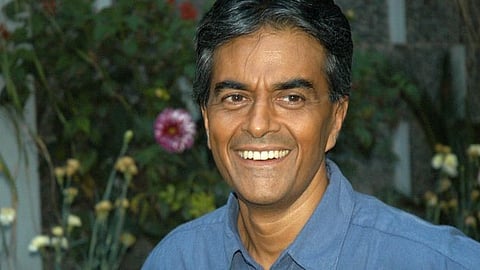

NEW DELHI: The JCB Prize for Literature, India’s most prestigious book award, appears to have been quietly discontinued, sparking concern across the literary community, including among writers, translators, and publishers.
A person close to the award told PTI on Saturday that “it has shut down”, though there has been no official confirmation from the JCB Literature Foundation.
Established in 2018, the prize aimed to “celebrate Indian writing, and to help readers across the world discover the very best of contemporary Indian literature”.
Following the awarding of the 2023 prize to English writer Upamanyu Chatterjee on November 23 last year, the foundation has remained silent. Its last social media post, on 27 November, congratulated Chatterjee for winning the Rs 25 lakh prize. Notably, the annual call for entries which typically opens in the first week of March did not take place this year.
Malayalam author Benyamin, winner of the inaugural 2018 award for Jasmine Days (translated into English by Shahnaz Habib), described the development as “deeply disappointing”.
“The JCB Prize was a highly promising recognition for Indian literature, not just Indian English writing, but also regional languages. It played a significant role in helping Indian literature reach a global audience,” said Benyamin, also the author of Goat Days.
In its seven-year run, the prize spotlighted translated fiction in five out of seven editions.
In 2020, Malayalam author S Hareesh won for Moustache, translated by Jayasree Kalathil. In 2021, M Mukundan’s Delhi: A Soliloquy (translated by Fathima E.V. and Nandakumar K) took the prize. The 2022 winner was The Paradise of Food by Urdu writer Khalid Jawed, translated by Baran Farooqi. Tamil writer Perumal Murugan's Fire Bird, translated by Janani Kannan, won in 2023.
“This is a great loss for Indian languages,” said Murugan. “Malayalam translations have won three times, Tamil once, and Urdu has been recognised too. It's truly disheartening.”
The 2019 award was given to Madhuri Vijay for her English-language novel The Far Field.
Author and publisher Namita Gokhale said the foundation might be reconsidering its format but praised its contribution to Indian literature.
“I don't know the truth of this. Perhaps they are rethinking the format or exploring other literary activities. But I appreciate the excellent work the JCB Prize has done in promoting translations,” she said.
Karthika VK, publisher at Westland Books, said the prize added immense value to the Indian publishing ecosystem.
“I’m sorry to hear it’s shutting down. We can only hope others will step in to fill the gap with prizes, grants, and residencies to support writers and translators,” she added.
Despite its literary achievements, the prize faced controversy last year when over a hundred writers, poets, and publishers signed an open letter condemning JCB, the British bulldozer manufacturer that sponsors the award, for allegedly “uprooting” the lives of the marginalised in India and Palestine.
Benyamin, however, dismissed the criticism: “It’s not the equipment that should be blamed, but those who misuse it. The same machines are used to build, too. I can’t align with that kind of reasoning especially when the prize itself had such a positive impact. I hope they reconsider and reinstate the award.”
The JCB Prize followed a transparent process, including a call for entries, a 10-book longlist, a 5-book shortlist, and a final winner.
Each shortlisted author received Rs 1 lakh, and translators received Rs 50,000. In the case of a translated work winning the prize, the author was awarded Rs 25 lakh, and the translator Rs 10 lakh.